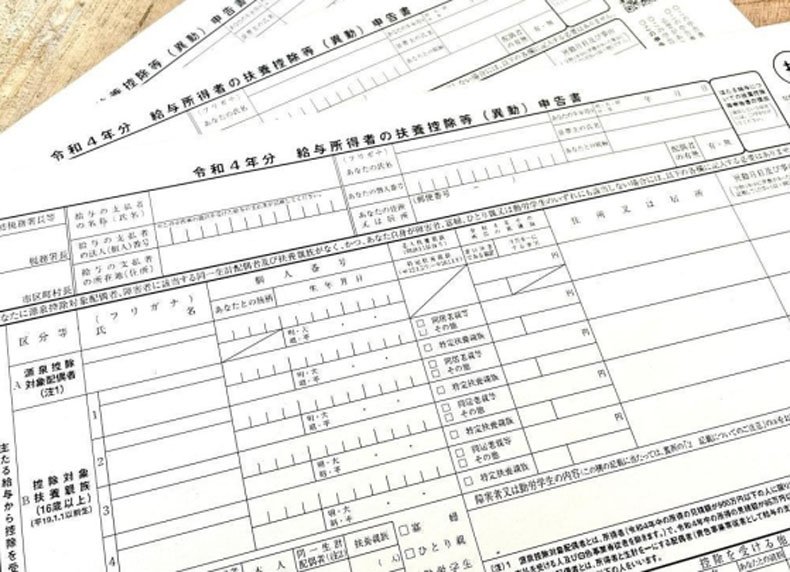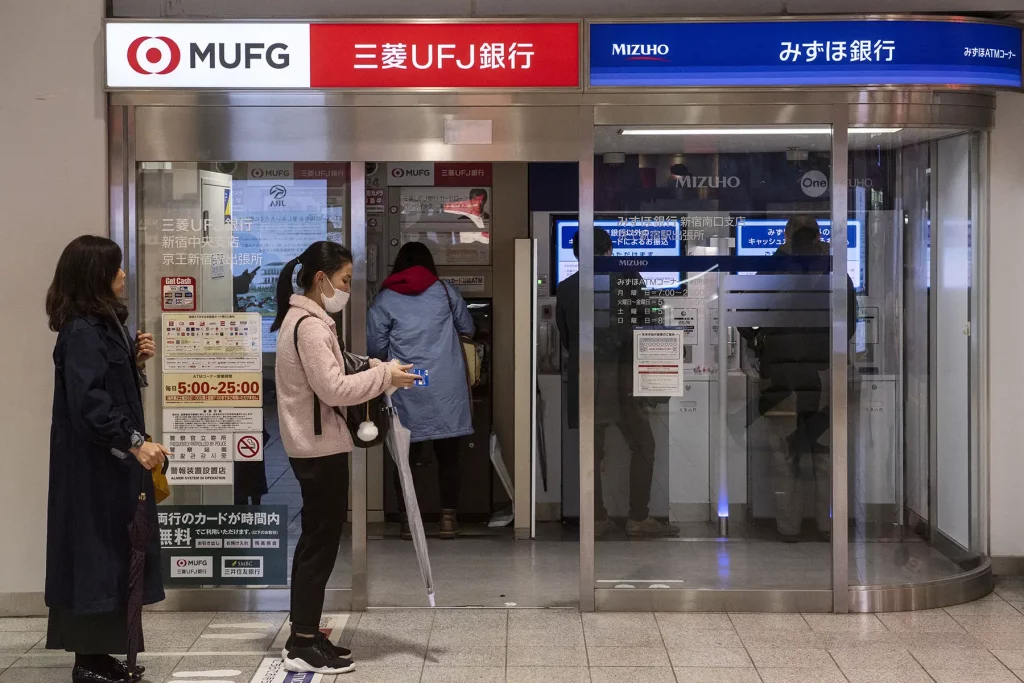All The Things You Need to Do Before Leaving Japan
Leaving Japan for Good? Your Essential Checklist
So, the time has come. After building a life, making friends, and navigating the unique joys and challenges of living and working in Japan, you’re planning your final departure. It’s a huge step, filled with mixed emotions and, yes, a bit of paperwork and procedure! While the thought of saying goodbye might be bittersweet, ensuring you handle everything correctly *before* you go is crucial for a smooth exit and to avoid any future headaches.

This guide is your Leaving Japan Checklist, designed to walk you through the essential procedures you need to complete when leaving Japan for good. We’ll cover everything from official notifications to financial matters and practical steps. By the end of this post, you’ll have a clear understanding of the final procedures before leaving Japan.
Let’s dive into what you need to do to wrap things up properly.
The Absolute Essentials: Immigration & Residence
These are arguably the most critical steps, dealing directly with your legal status in Japan. Don’t leave these until the last minute!
Notifying Your Ward Office/City Hall (Moving Out Notification)
- When to do it: Typically, within 14 days *before* your departure date.
- What you need:
- Your Residence Card (在留カード – zairyu card)
- Your personal seal (印鑑 – inkan) if you have one registered
- Your My Number Card (マイナンバーカード) or Notification Card (通知カード), if you have one
- The Procedure: Go to the resident affairs division (住民課 – jumin-ka) or citizen’s affairs division (市民課 – shimin-ka) of your ward/city hall. Request to file a “Moving Out Notification” (転出届 – tenshutsu todoke). They will process it and issue you a “Moving Out Certificate” (転出証明書 – tenshutsu shoumeisho). While you might not technically need this certificate *when leaving the country*, filing the notification is mandatory and starts the process of removing you from the resident registry. It’s key for handling things like residence tax and National Health Insurance.
- Why it’s important: It’s a legal requirement and the starting point for severing your administrative ties with your municipality.
Returning Your Residence Card

- When to do it: At the immigration counter at the airport *on your departure day*.
- The Procedure: When you go through immigration at the airport, the officer will take your Residence Card, punch a hole through it (or mark it), and return it to you as a souvenir or keep it. Inform them clearly that you are leaving Japan for good.
- Why it’s important: This is the official record of your departure and the end of your residence status. Failing to do this can cause issues if you ever plan to return to Japan in the future, even as a tourist. Make sure you don’t lose it before you get to the airport!
Tying Up Financial Loose Ends
Taxes, insurance, and banking require careful attention to ensure you don’t leave behind liabilities or lose potential refunds.
Dealing with Taxes (Residence Tax & Income Tax)
This is often the most confusing part for many foreign residents. Japan’s tax system operates on a fiscal year (Jan 1 – Dec 31), and residence tax is based on the previous year’s income, payable the following year.

- Residence Tax (住民税 – jumin-zei): If you were living in Japan as of January 1st of the year you are leaving, you are liable for the full year’s residence tax based on your *previous* year’s income, even if you leave mid-year.
- What to do: When you file your Moving Out Notification at the ward office, they will inform you how the remaining tax needs to be paid. You usually have two options:
- Pay it all before leaving: If your departure is after May but before the final payment deadline (usually January of the next year), you can ask to pay the remaining installments in a lump sum *before* you leave.
- Appoint a Tax Representative (納税管理人 – nouzei kanrinin): If you cannot pay it all before leaving, you *must* appoint a resident in Japan (a friend, employer, etc.) to be your tax representative. This person will receive tax bills on your behalf and ensure they get paid. You need to file a notification appointing this person at the ward office. This is absolutely crucial if you don’t want tax bills piling up in your name after you leave.
- Why it’s important: Unpaid taxes can accrue penalties and interest, and potentially cause issues if you wish to return to Japan later. Cancelling residence tax Japan requires appointing a representative or paying in full.
- What to do: When you file your Moving Out Notification at the ward office, they will inform you how the remaining tax needs to be paid. You usually have two options:
- Income Tax (所得税 – shotoku-zei): This applies to income earned from January 1st up to your departure date.
- What to do:
- If you are an employee, your company *should* perform a year-end adjustment (年末調整 – nenmatsu chousei) for the income earned until you leave.
- If you are self-employed or your employer doesn’t do the adjustment, you might need to file a final tax return (確定申告 – kakutei shinkoku) *before* leaving. You may also need to appoint a tax representative for this.
- Why it’s important: To ensure you’ve paid the correct amount of income tax. You might even be eligible for a refund in some cases.
- What to do:
Social Insurance (Health Insurance & Pension)
You need to terminate your enrollment in the National Health Insurance (国民健康保険 – kokumin kenkou hoken) and/or Employee’s Health Insurance (健康保険 – kenkou hoken) and address your pension contributions.

- Cancelling Health Insurance:
- National Health Insurance: When you file your Moving Out Notification at the ward office, inform them you are leaving the country permanently. They will guide you on the procedure to cancel your National Health Insurance. You may need to return your health insurance card.
- Employee’s Health Insurance: Your employer will handle the termination of your Employee’s Health Insurance when you leave the company. Your health insurance card becomes invalid on your final day of employment (or shortly after).
- Understanding Pension Lump-Sum Withdrawal (脱退一時金 – dattai ichijikin): If you are enrolled in the National Pension (国民年金 – kokumin nenkin) or Employee’s Pension (厚生年金 – kousei nenkin) system, you might be eligible for a lump-sum refund of some of your past contributions *after* you leave Japan.
- Eligibility: Requires at least 6 months of contributions and varies based on your nationality’s social security agreement with Japan. You must apply *within two years* of leaving Japan.
- What to do: This cannot be done *before* you leave. You apply from *outside* Japan after your departure. You’ll need proof of your final departure (often a copy of your passport showing the exit stamp) and potentially a special form from the pension office.
- Why it’s important: This is your opportunity to reclaim some of your contributions, as you likely won’t be receiving a Japanese pension in retirement unless you contribute for many years. Look into the Pension lump-sum withdrawal Japan process thoroughly.
Closing Your Bank Account
It’s highly recommended to close your Japanese bank account before you leave, especially if you won’t have a tax representative or need to handle payments after departure.

- What to do: Visit your bank branch. Bring your bank book (通帳 – tsuchou), cash card (キャッシュカード – kyasshu card), registered seal (印鑑 – inkan), and Residence Card (which will be hole-punched). Be prepared for potential questions about your departure. Some banks may require proof of your upcoming departure or ask you to leave a forwarding address (though this is less relevant if closing the account).
- Why it’s important: To prevent unauthorized transactions, avoid potential dormancy fees, and simplify your financial affairs once overseas. Closing bank account Japan ensures there are no lingering ties.
Practicalities: Bills, Housing, and More
Don’t forget the everyday services you use. Cancelling these properly avoids unexpected bills or issues.
Cancelling Utilities (Electricity, Gas, Water)
You need to inform your utility providers of your move-out date.
- What to do: Contact your electricity, gas, and water companies a week or two before you leave. Provide your customer number, address, final meter reading date (usually your move-out date), and a contact number or address for the final bill. You might be able to pay the final bill at a convenience store or via bank transfer arranged beforehand.
- Why it’s important: To stop billing and ensure the services are disconnected after you leave.
Handling Your Mobile Phone/Internet Contract
These often involve contracts that can be tricky to cancel.
- What to do: Contact your provider well in advance (some require a month’s notice). Be aware of potential contract cancellation fees if you are still within a minimum contract period. You’ll need to pay any final bills.
- Why it’s important: To avoid recurring charges after you leave.
Moving Out and Closing Housing Matters
This involves cleaning, potential repairs, and getting your deposit back.
- What to do: Arrange a move-out inspection with your landlord or real estate agent. Clean the apartment thoroughly. Be prepared for deductions from your deposit for cleaning or damages beyond normal wear and tear. Ensure you return the keys.
- Why it’s important: To finalize your rental agreement and potentially receive your deposit refund (or know what deductions were made). Consider Moving out procedures Japan early.
Redirecting or Stopping Mail
Prevent important documents (like tax bills!) from getting lost or sent to an empty apartment.
- What to do: You can file a mail forwarding request at the post office (郵便局 – yuubinkyoku) to redirect mail to a new address in Japan for up to a year. If you are leaving the country, it’s best to update addresses with important institutions (ward office, bank, pension office if applicable) before you go or arrange for a trusted person in Japan to handle mail. You can also put a sign on your mailbox indicating you’ve moved out.
- Why it’s important: Ensures you don’t miss critical correspondence, especially related to taxes or pension.
Other Practical Tips
- Sell or Dispose of Belongings: Plan how to handle furniture and other items you aren’t taking. Selling online or via recycle shops, or arranging for bulk trash disposal (粗大ごみ – sodai gomi) requires planning and sometimes fees.
- Saying Goodbyes: Make time to connect with friends and colleagues!
- Gather Important Documents: Keep your Residence Card (until the airport), passport, tax documents, pension documents, and copies of cancellation notices organized.
Quick Summary: Your Leaving Japan Checklist
Here are the key actions to take when leaving Japan for good:
- Notify your Ward Office/City Hall (Moving Out Notification).
- Appoint a Tax Representative for residence tax if needed, or pay in full.
- Cancel National Health Insurance enrollment.
- Close your Japanese Bank Account.
- Cancel Utility contracts (Electricity, Gas, Water).
- Cancel Mobile Phone/Internet contracts.
- Complete Moving Out procedures for your housing.
- Arrange for Mail forwarding or handling.
- Keep your Residence Card until you present it at airport immigration.
- Apply for the Pension Lump-Sum Withdrawal *after* leaving Japan (if eligible).
FAQs About Leaving Japan
-
Can I just leave Japan without doing any of this?
No, it is highly recommended and legally required to handle procedures like the moving-out notification and Residence Card return. Ignoring taxes or bills can lead to future complications.
-
What about my pension? Can I get that money back?
Yes, many foreign workers are eligible for the Pension lump-sum withdrawal Japan after leaving. You must apply from outside Japan within two years of your departure date.
-
Do I really need a tax representative for residence tax if I’m leaving?
If you were a resident on January 1st of the year you leave and don’t pay the full year’s residence tax *before* you go, appointing a Tax representative is mandatory to handle the remaining payments and avoid future issues.
-
What’s the correct order to do things like the ward office and immigration?
Generally, notify the ward office *first* (within 14 days before leaving) to start the administrative process. Returning your Residence Card is done at the airport *on your departure day*.
-
What should I do with large items like furniture when moving out?
You need to arrange for Moving out procedures Japan which includes disposing of large items. This usually involves applying for bulk trash collection (粗大ごみ) at your local municipality and paying a fee, or selling/giving items away.
Conclusion
Preparing to leave Japan involves more than just packing your bags. By following these final procedures before leaving Japan, you can ensure a smooth administrative and financial departure. While the list might seem long, tackling each step methodically will save you stress down the line.
Leaving Japan for good is a significant transition. Taking the time to complete this essential Leaving Japan Checklist properly will allow you to close this chapter confidently and look forward to your next adventure without worrying about unfinished business back in the Land of the Rising Sun. Good luck with your move!
If you have complex questions about your specific situation, like detailed tax queries, pension lump-sum withdrawal eligibility, or need assistance navigating the official procedures, it can be incredibly helpful to consult with professionals who specialize in assisting foreign residents in Japan. Don’t hesitate to seek expert advice to ensure everything is handled correctly before your departure.
“`
